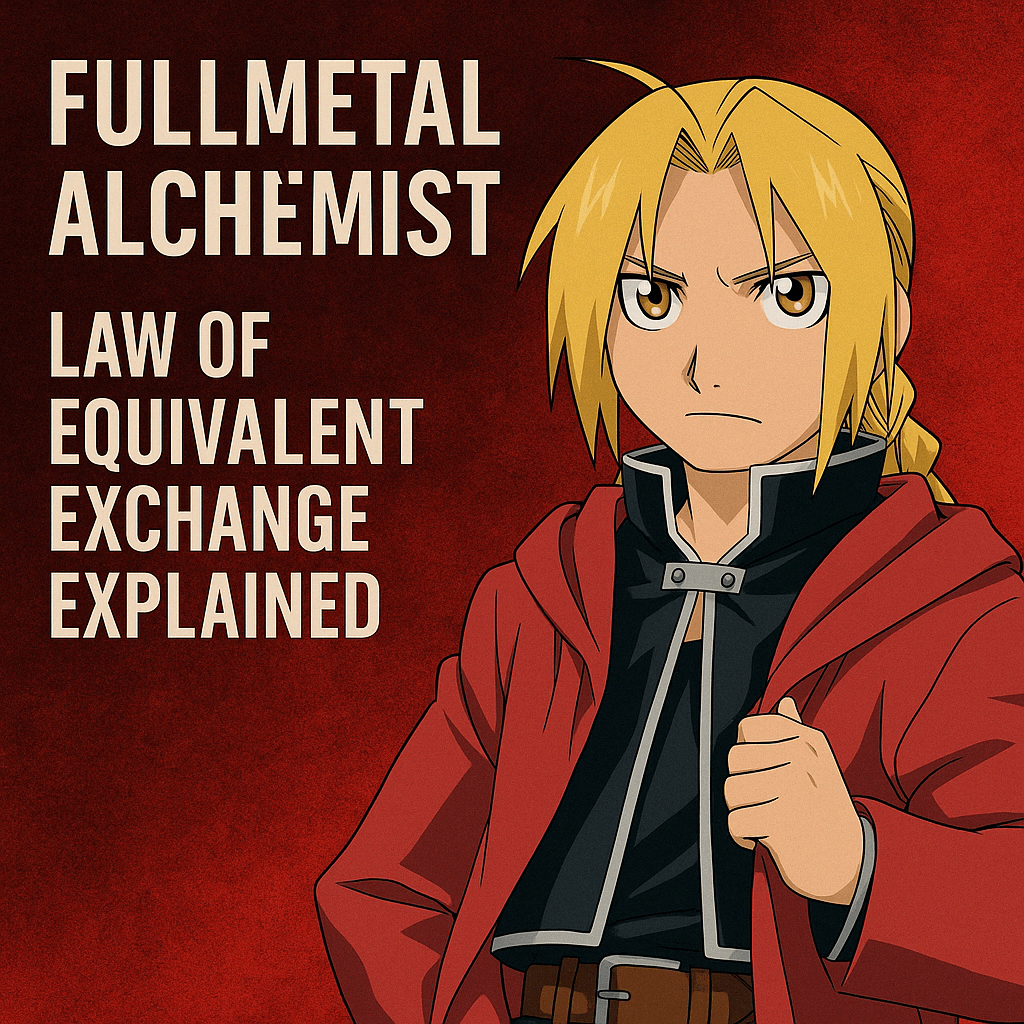
Summary
- In Fullmetal Alchemist, alchemy operates under the Law of Equivalent Exchange, which states that something cannot be created from nothing — to create something, something of equal value must be exchanged and lost.
- Human transmutation is considered taboo, as reviving the dead is impossible without sacrificing something of infinite value.
- Attempting human transmutation causes a rebound, a violent backlash that exacts a heavy toll on the alchemist attempting it.
- Using a Philosopher’s Stone bypasses the rebound, allowing alchemists to perform otherwise impossible feats, including human transmutation.
- However, the Philosopher’s Stone is made from countless human souls, making its use and creation morally reprehensible.
- The protagonists refuse to exploit the Philosopher’s Stone, choosing instead to abide by the law’s harsh truths — even if it means enduring failure and hardship.
“Humankind cannot gain anything without first giving something in return.”
If you’ve ever watched the popular anime/manga series Fullmetal Alchemist or Fullmetal Alchemist: Brotherhood, that quote probably gave you chills.
The Law of Equivalent Exchange is important in the story, representing both the rules of alchemy and the moral compass guiding the Elric brothers. But what does it really mean?
Therefore, a material or energy can not be created out of nothing, nor can it be destroyed; it can only be transformed. For example, a piece of wood can turn into a wooden stick, water can become ice, and so on.
In Fullmetal Alchemist, the concept of Equivalent Exchange is rooted in two core principles: the Law of Conservation of Mass and the Law of Conservation of Providence, both of which shape the rules and limits of alchemy in the series.
In this guide, we’re breaking it all down: the meaning, the moments, and the philosophy behind Equivalent Exchange.
What Is the Law of Equivalent Exchange?
In Fullmetal Alchemist, alchemy follows strict rules. Two of the biggest are the law of conservation of mass and the law of natural selection.
The law of conservation of mass means you can’t make something from nothing. You need the right amount of material to create something new. For example, if you have one gram of metal, you can only make something that also weighs one gram. Break it apart, and the pieces will still weigh one gram in total.
The law of natural providence says you can’t change one material into something different. Stone stays stone. Wood stays wood. You can shape it into something new, but it stays the same at its core. You can’t turn water into fire or lead into gold.
There are a few rare exceptions. But they usually come with a heavy cost.
The Law of Equivalent Exchange is the golden rule of alchemy in the Fullmetal Alchemist universe. It states:
“In order to obtain or create something, something of equal value must be lost or destroyed.”
This isn’t just a fictional mechanic, but it’s also a philosophical statement. The law defines how alchemy works: it’s not magic, but a system of balance. Want to fix a broken radio? You’ll need materials of equal mass and value. This is where the statement, “You cannot create something out of nothing without equal exchange,” comes into play.
And in the Fullmetal Alchemist series, the Law of Equivalent Exchange also has 3 rules:
- Do not attempt Human Transmutation
- Do not use alchemy to act against the government
- Do not use alchemy to transmute gold
How the Law’s taboo drives the Plot of Fullmetal Alchemist
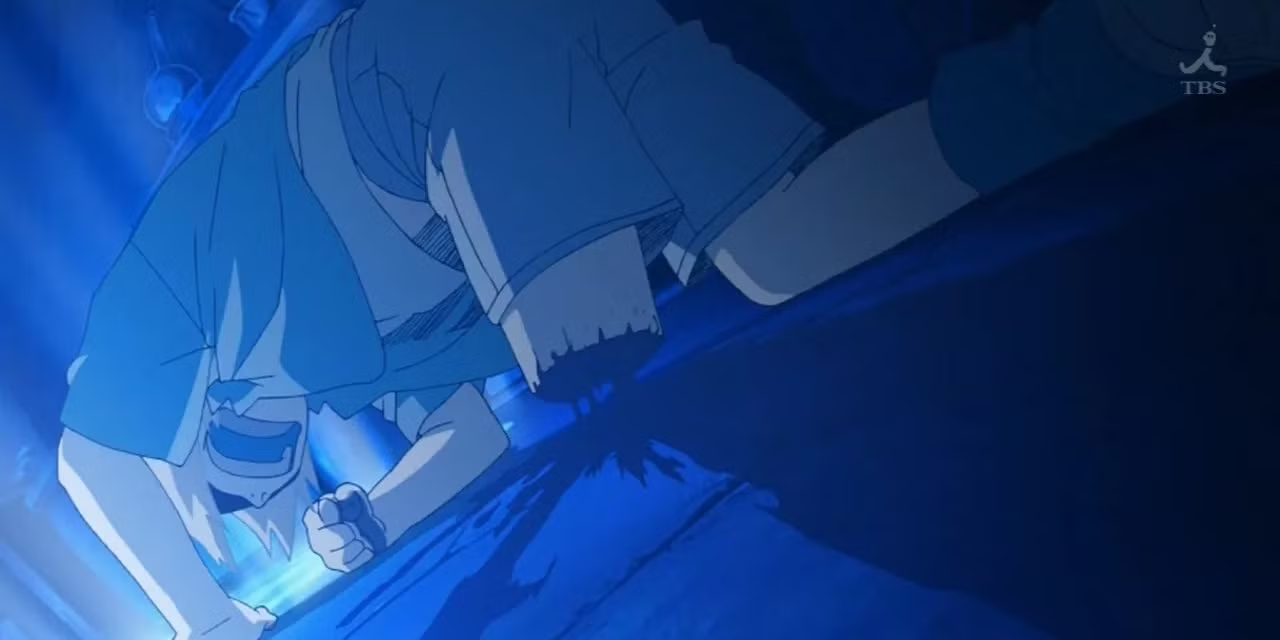
Ed and Al Elric tried to bring their mother back to life using human transmutation. It was the biggest mistake of their lives. Ed lost his leg. Al lost his whole body. In a panic, Ed gave up his arm to attach Al’s soul to a suit of armor.
This act broke the rules of Equivalent Exchange. And it set them on a long journey to fix what they had done. Their goal? To find the Philosopher’s Stone, a powerful item that could restore their bodies. But really, they were searching for a way to cheat the laws of alchemy.
As they kept going, they learned a hard truth. You can’t break the rules without paying a price. The Philosopher’s Stone does work, but it’s created by sacrificing countless human lives. That’s the cost. And it’s horrifying.
Alchemy may look like magic, but it has limits. One of those limits is death. You can’t bring someone back once they’ve truly passed on. To revive someone, both their body and soul must be present. Al says a soul can only return to its original body, and vice versa. That’s why his soul starts to reject the armor. It isn’t where he belongs.
The series makes it clear: the human soul has no equal. You can’t measure its value. And if you try to trade for it with something less, the exchange fails. That’s what causes a rebound, which is a violent reaction that takes something from the alchemist instead.
When Ed and Al tried to bring their mother back, Al lost his body, and Ed lost his leg. Then Ed lost his arm to save Al’s soul. Their teacher, Izumi Curtis, lost her organs after trying to bring back her baby. Even Roy Mustang, who was forced to perform human transmutation, paid the price. He lost his eyesight.
No matter the reason, no matter the intent, alchemy always takes something in return. That’s the law. And trying to break it always leads to suffering.
Fullmetal Alchemist vs. Brotherhood – Differences in the Law’s Portrayal
There are two major anime adaptations of the series: Fullmetal Alchemist (2003) and Fullmetal Alchemist: Brotherhood (2009). Both explore Equivalent Exchange, but in different ways.
- The 2003 FMA dives into existential and emotional territory, questioning whether Equivalent Exchange is even real in a world full of loss and injustice. It ends on a bittersweet note, suggesting that maybe sacrifice doesn’t always bring reward.
- Brotherhood, which follows the manga more faithfully, stays committed to the law but shows how growth and understanding can help characters find peace within its limits.
In both versions, Equivalent Exchange evolves from a strict law to a life lesson.
The Law Of Equivalent Exchange and the Philosopher’s Stone
When someone attempts human transmutation, they’re dragged through something called the Gate of Truth. It’s a mysterious portal connected to the being known as Truth, who acts like a god, judge, and teacher all at once.
Truth knows everything about alchemy, history, and the universe. It shows the alchemist a glimpse of that infinite knowledge. But this knowledge comes at a price.
Being pulled through the Gate of Truth leaves a mark. It could be your limbs, your eyesight, or your organs. It’s different for each person, but the punishment always fits the act. Ed loses his leg. Al loses his body.
Their teacher, Izumi, loses parts of her insides. Roy Mustang, who was forced into performing human transmutation, still loses his sight. The law doesn’t care about intent — only the act.
Interestingly, once someone has passed through their Gate, they gain the ability to perform alchemy without using a Transmutation Circle.
It seems like a gift, but it’s really just part of the exchange/power in return for pain. And even with this new ability, the basic laws of alchemy still apply. You still can’t cheat death.
But there is one way around the law: the Philosopher’s Stone. It allows alchemists to bypass the usual price of human transmutation. That’s because it’s made from the souls of many people, giving it enough “value” to cover the cost. No rebound. No physical loss. Sounds like the perfect solution, right?
Not exactly.
The Philosopher’s Stone might work, but it’s built on suffering. Using it means sacrificing innocent lives. That’s why Ed and Al refuse to use one, even if it would fix everything instantly.
What We Learn from the Law of Equivalent Exchange
The beauty of Fullmetal Alchemist is how it uses this fictional law to teach real-life lessons:
- Sacrifice is part of growth. Nothing worth having comes easy.
- Actions have consequences. Even with the best intentions, there is always a price.
- Balance is key. Whether in relationships, power, or knowledge, imbalance leads to destruction.
In the end, the law teaches us that striving for our goals requires effort, understanding, and sometimes loss. And maybe, just maybe, that’s okay.

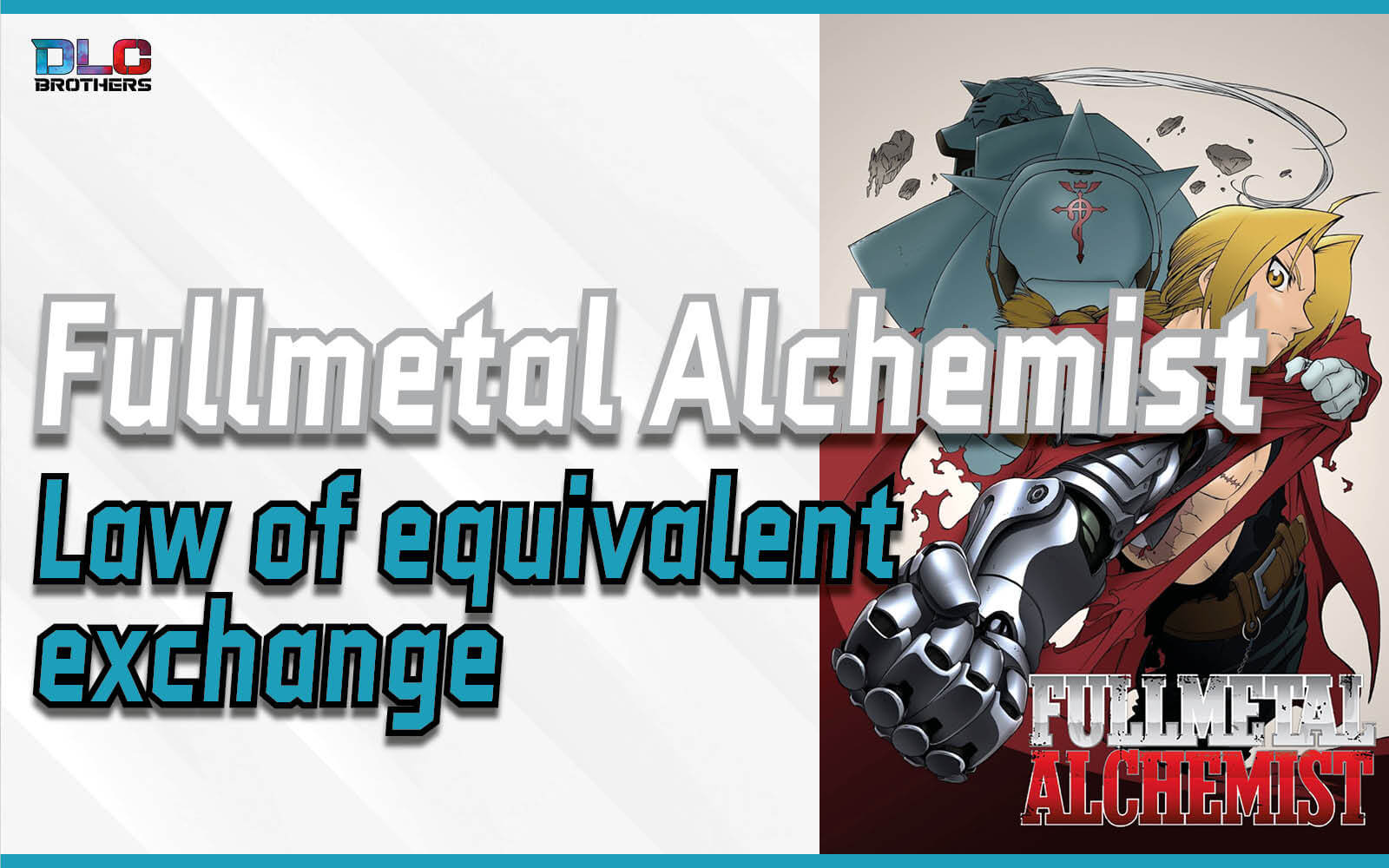
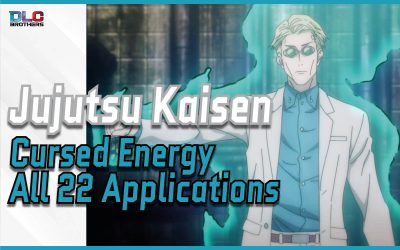
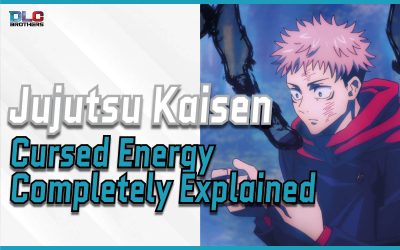
0 Comments